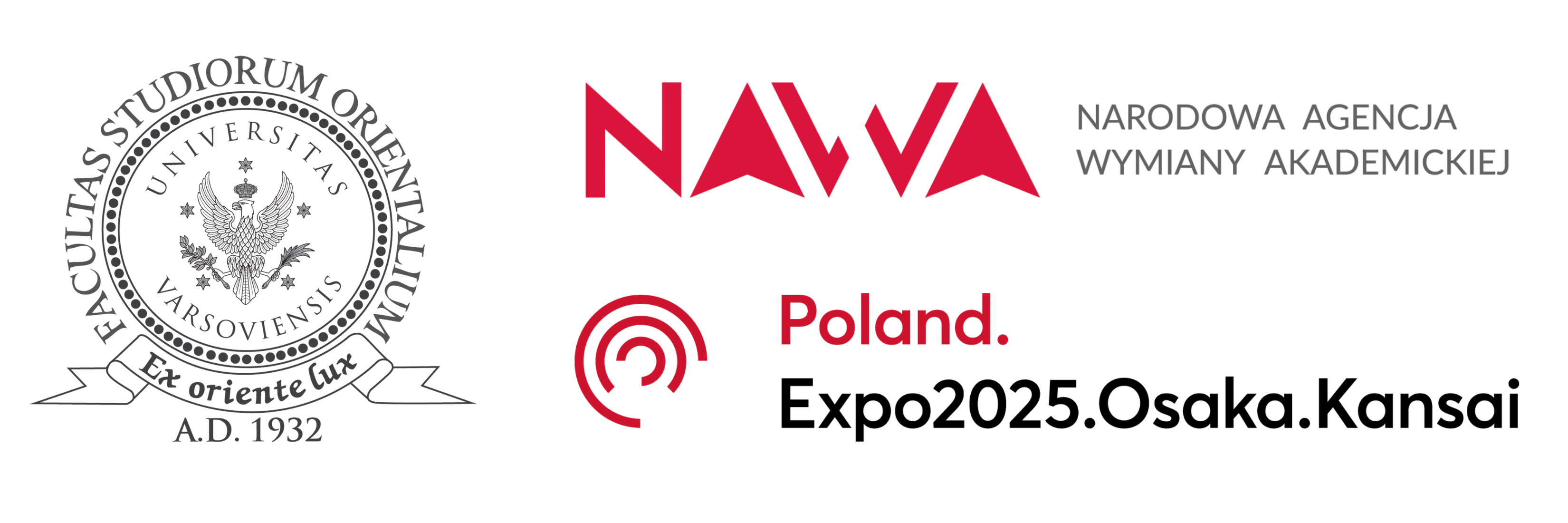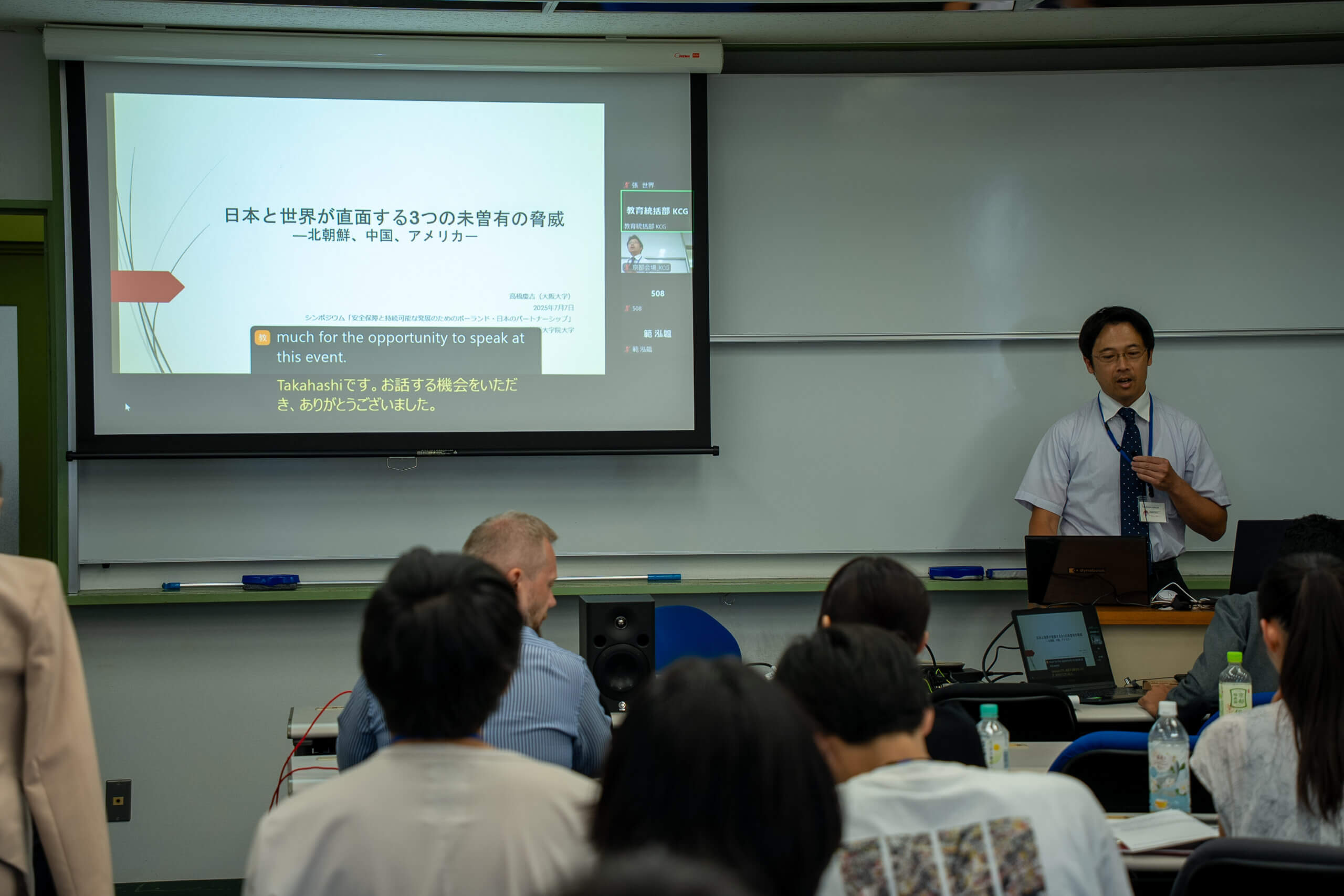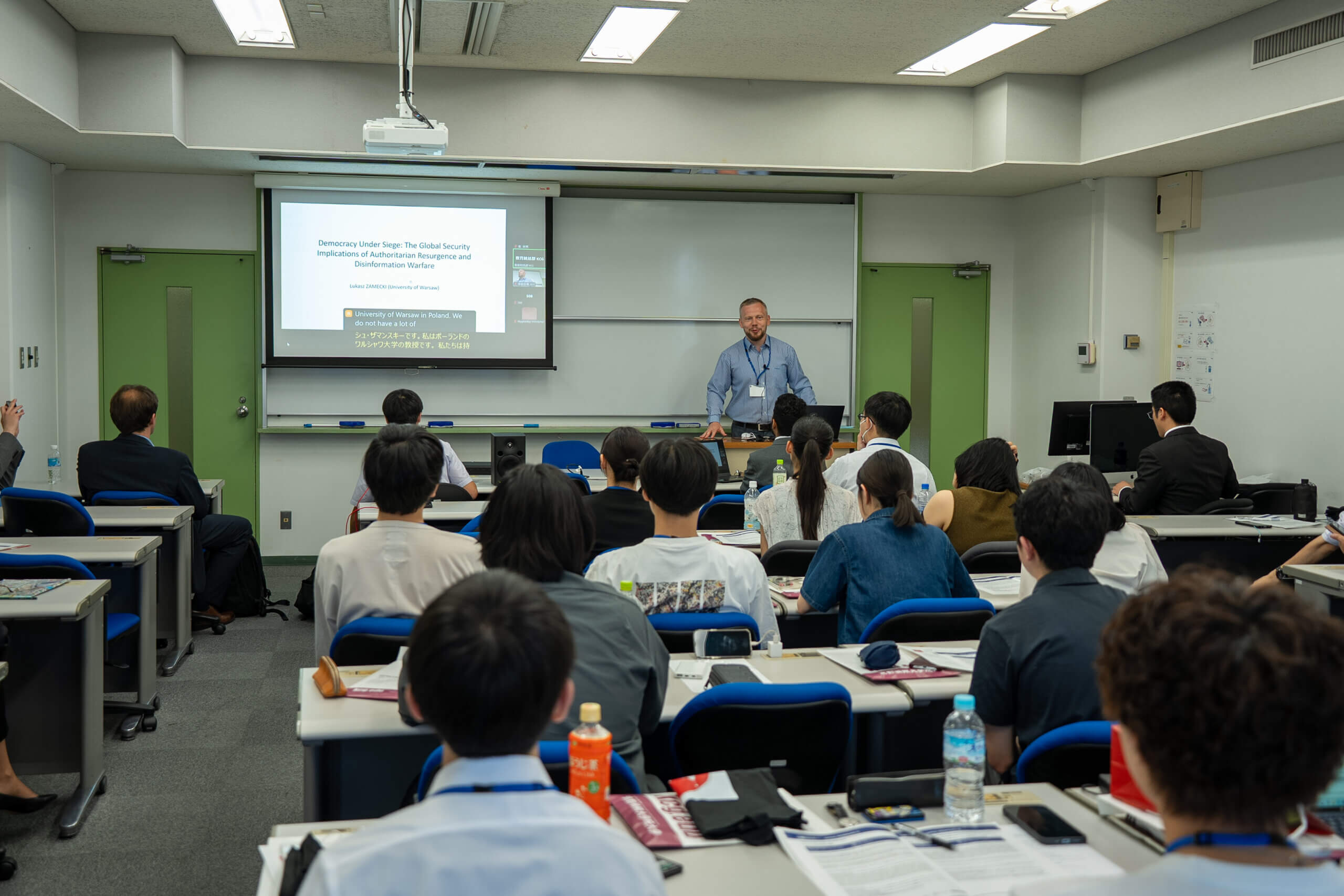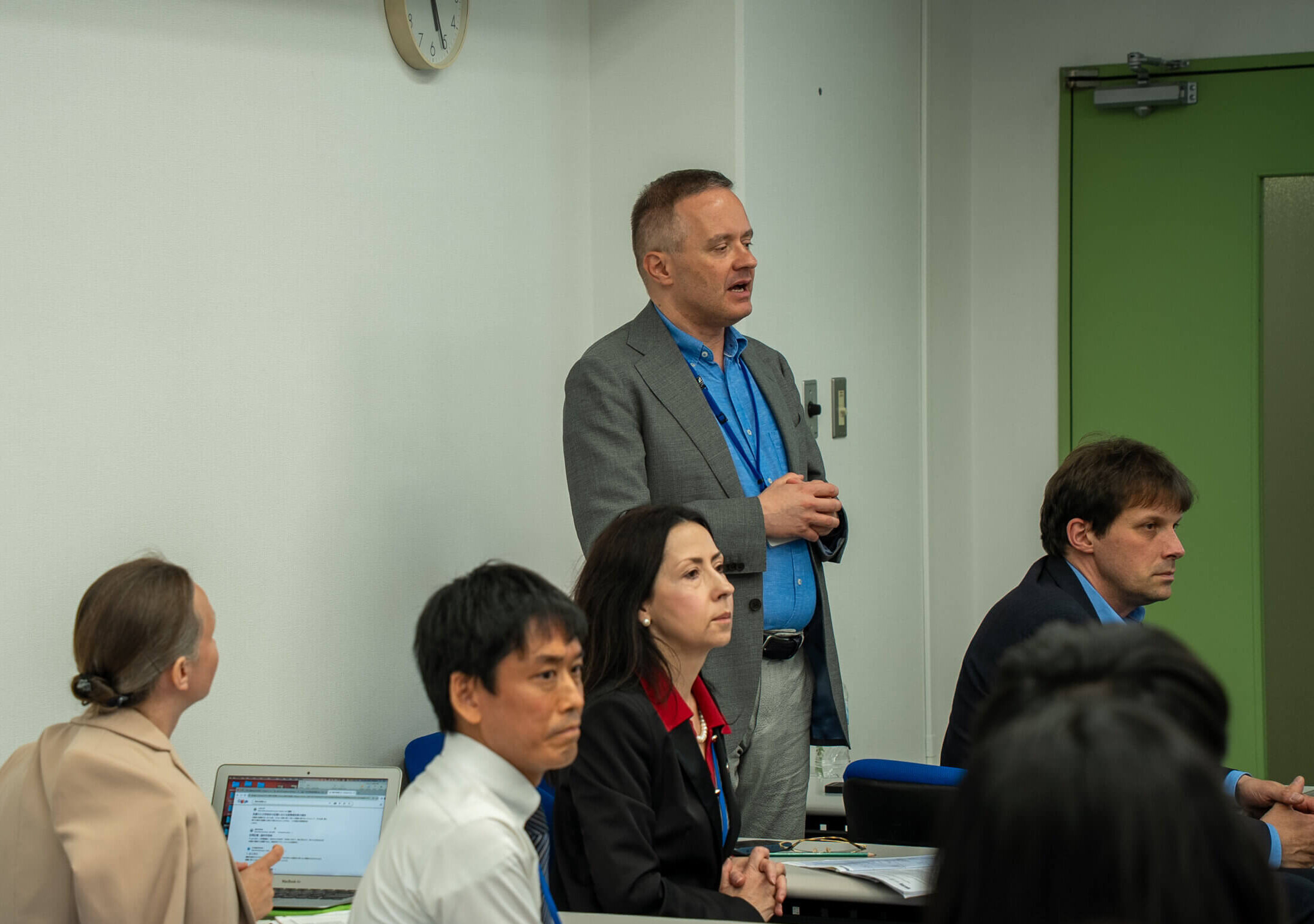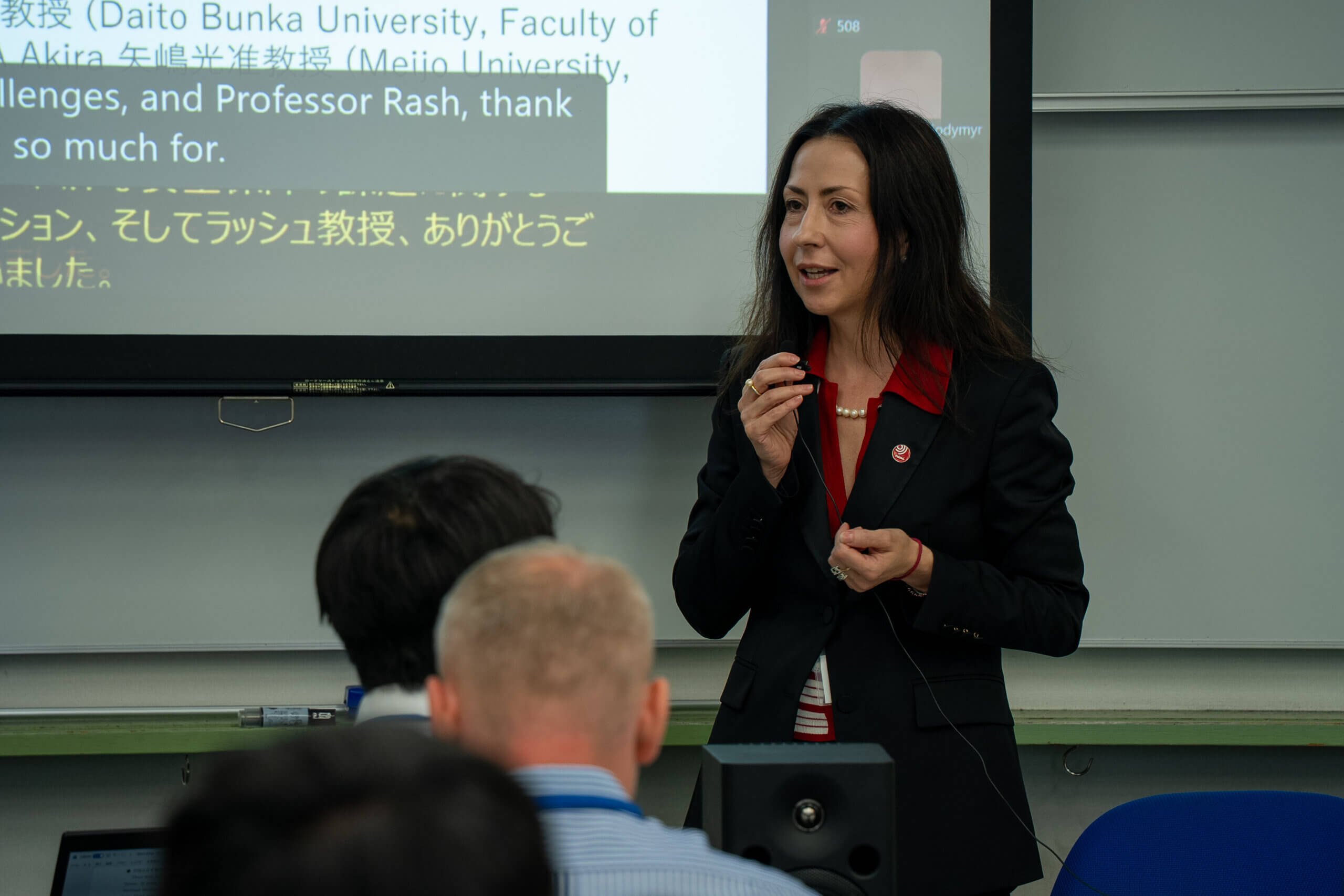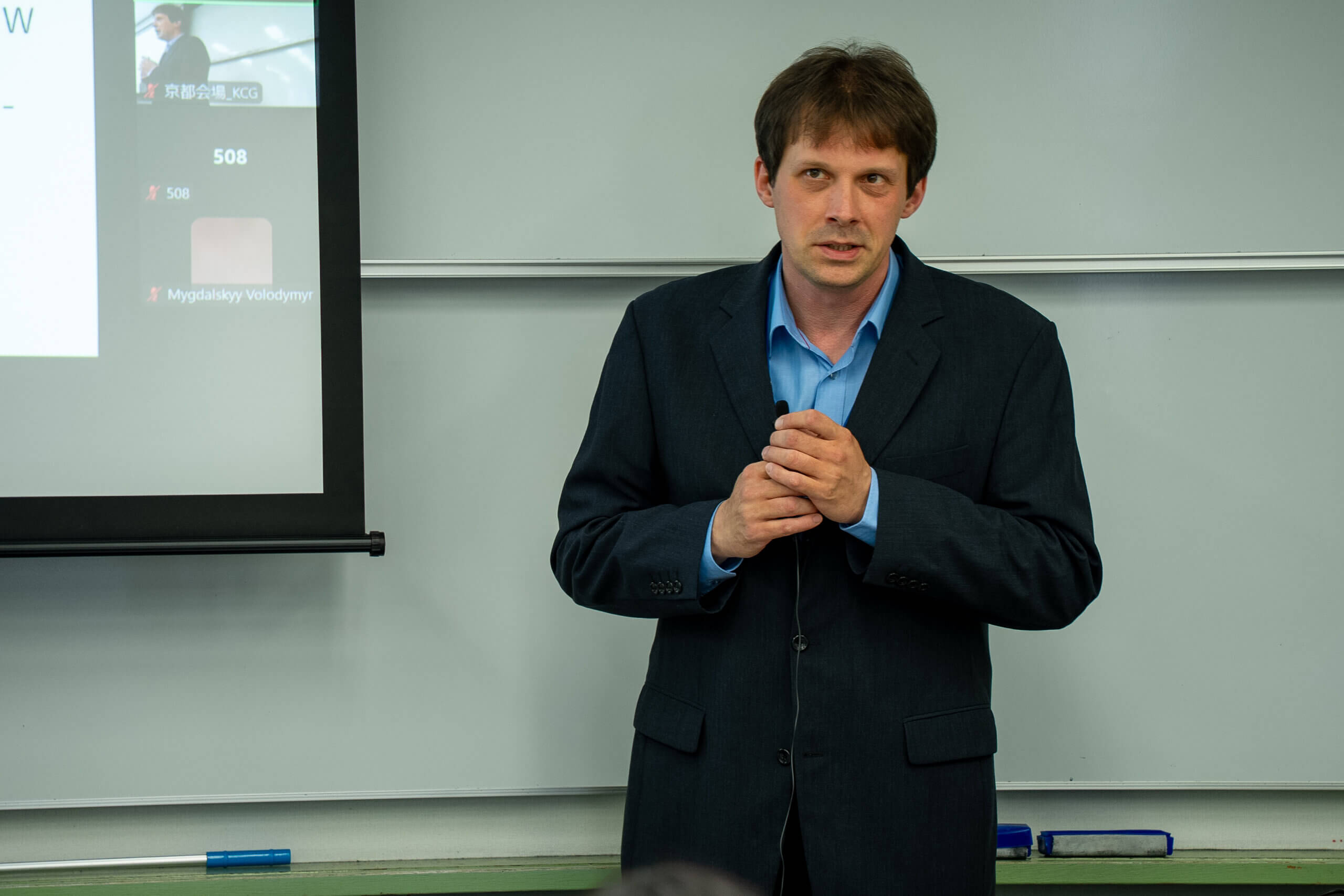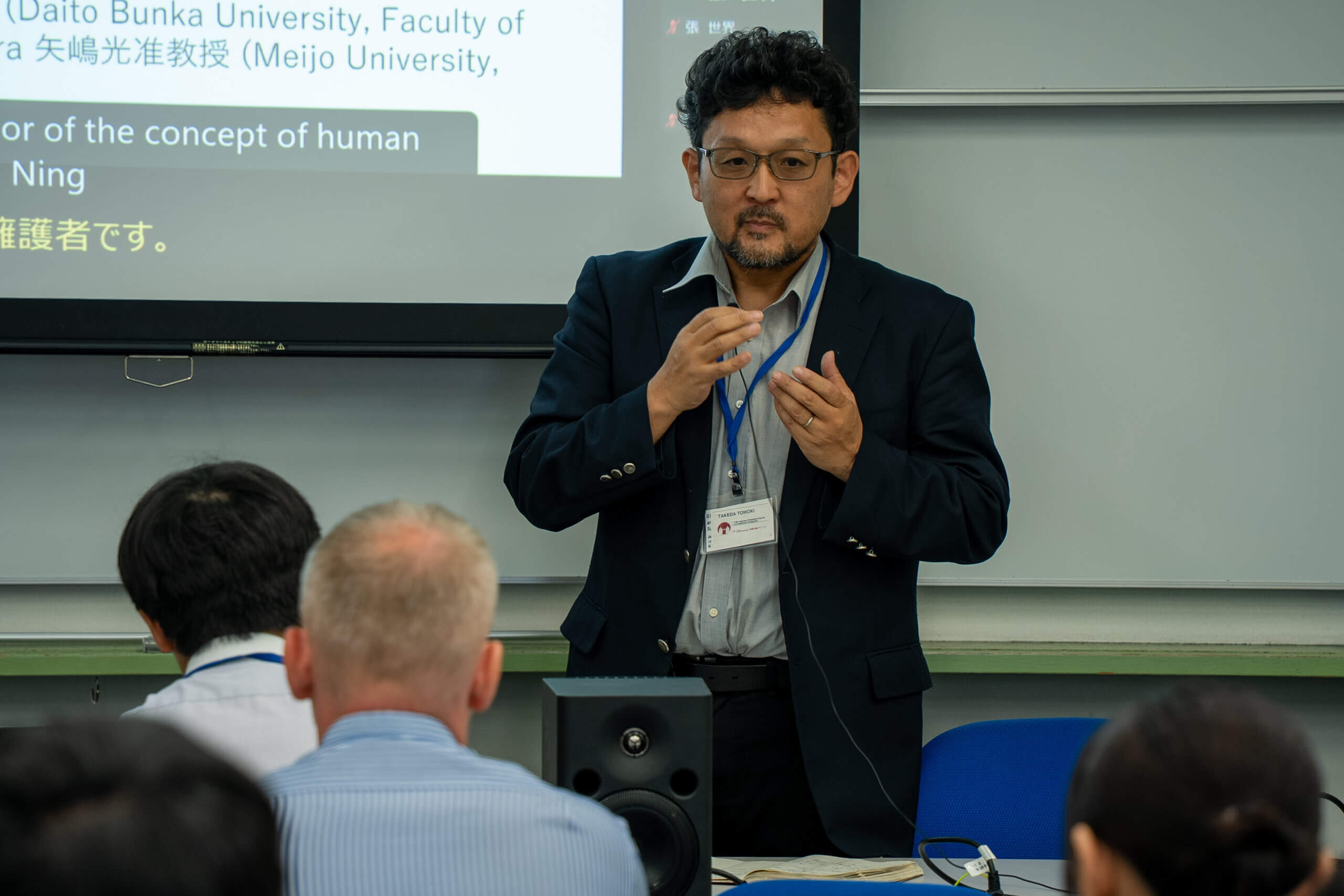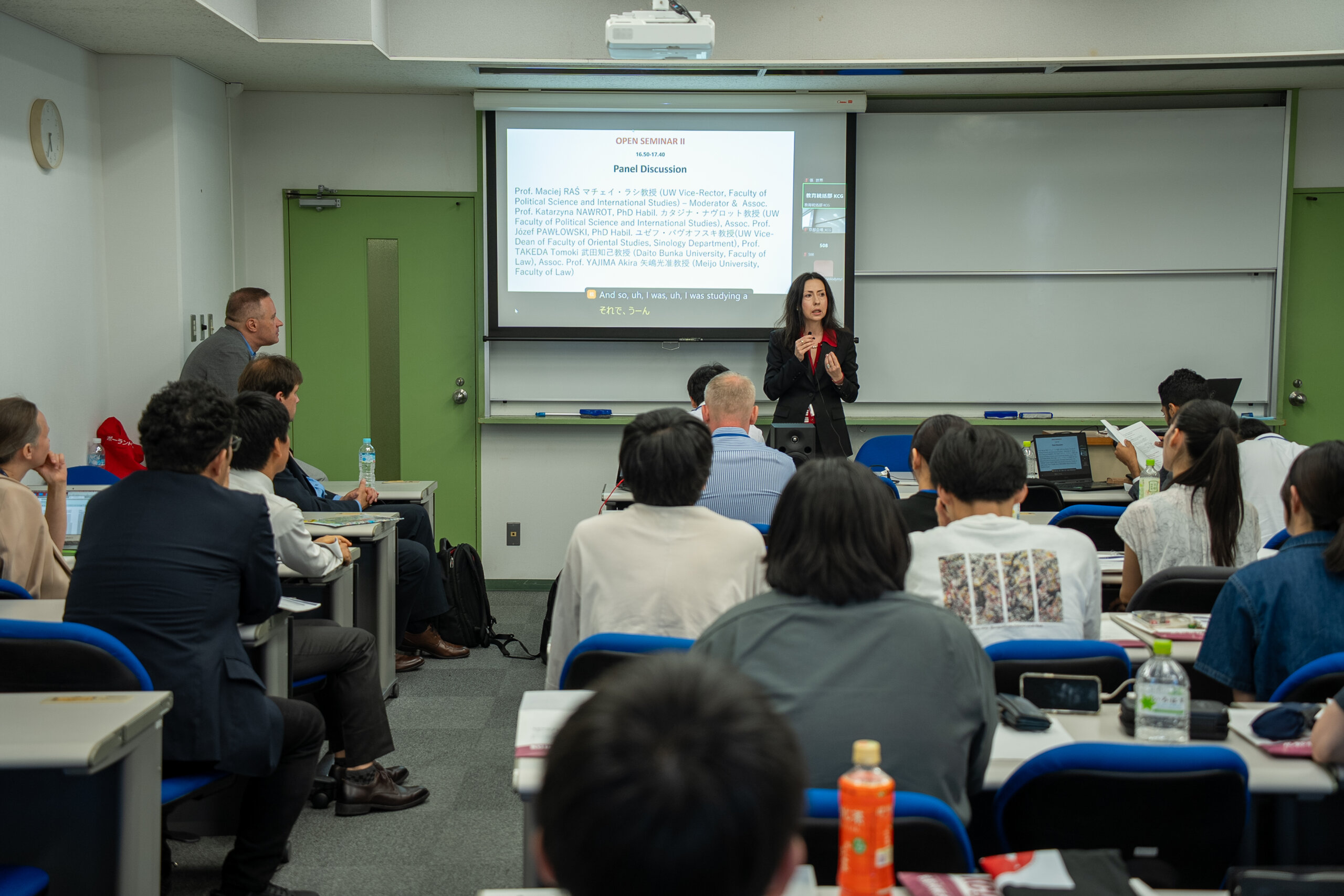7/07/2025 Globalne wyzwania bezpieczeństwa
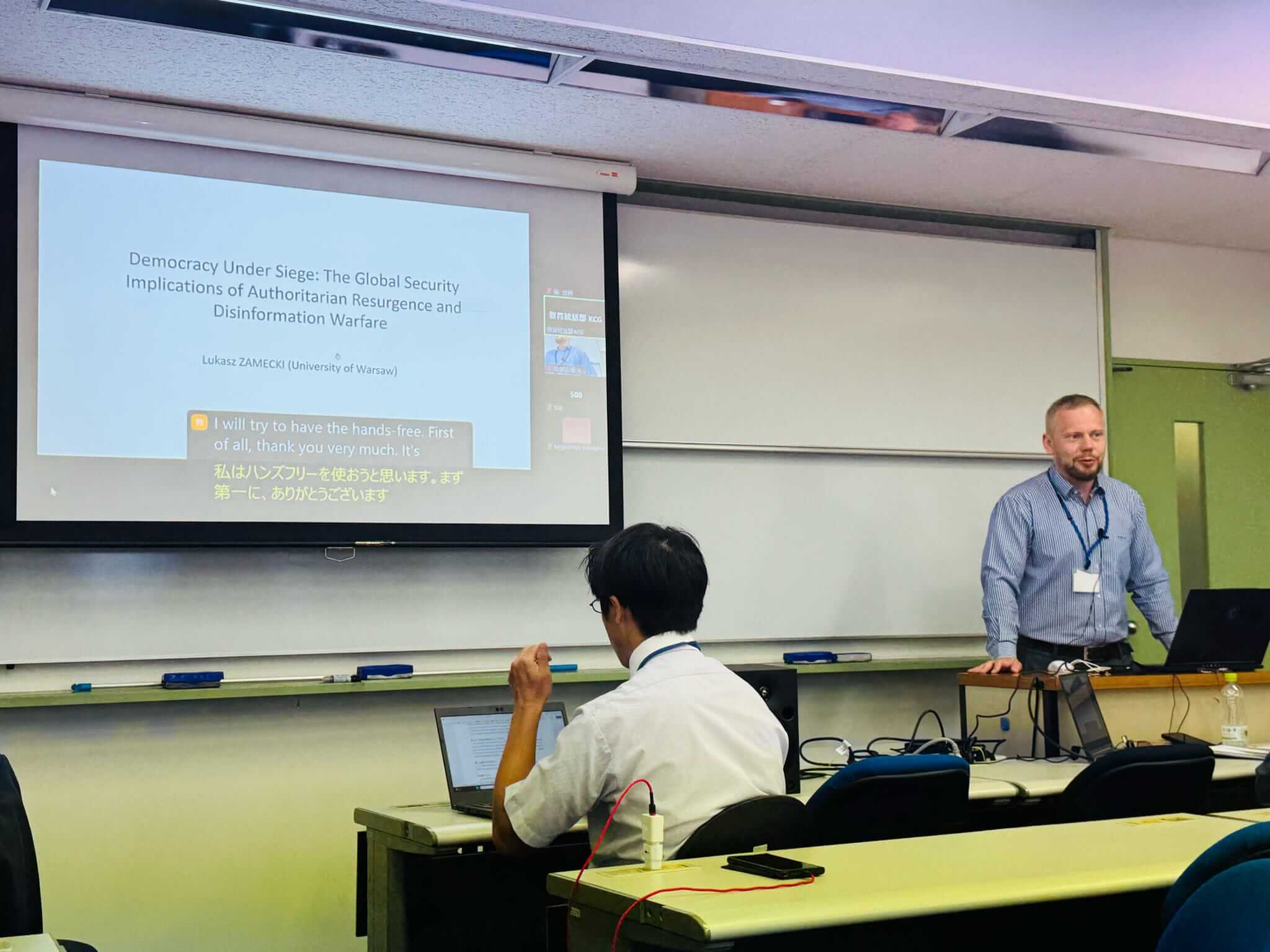
Kategoria: Konferencje i seminaria
W programie Japońsko-Polskiego Spotkania Akademickiego, które odbyło się 7 lipca 2025 r. w Kioto znalazło się m.in. seminarium otwarte zatytułowane Global Security Challenges. W roli prelegentów wystąpili prof. Takahashi Keikichi z Uniwersytetu Osaka (Graduate School of Law and Politics) oraz dr hab. Łukasz Zamęcki z Wydziału Nauk Politycznych i Stosunków Międzynarodowych UW. W dyskusji panelowej, którą poprowadził prof. dr hab. Maciej Raś – prorektor UW ds. studenckich i jakości kształcenia (reprezentujący także Wydział Nauk Politycznych i Studiów Międzynarodowych) wzięli udział prof. Takeda Tomoki z Wydziału Prawa Uniwersytetu Daito Bunka, prof. Yajima Akira z Wydziału Prawa Uniwersytetu Meijo, a także dr hab. Katarzyna Nawrot (WNPiSM UW) oraz dr hab. Józef Pawłowski (Zakład Sinologii, Wydział Orientalistyczny UW).
Abstrakty wystąpień:
Prof. TAKAHASHI Keikichi 高橋慶吉教授 (Osaka University, Graduate School of Law and Politics), Unprecedented threats for Japan and the World: North Korea, China, and the United States
Japan and the world are currently confronted with three unprecedented geopolitical threats: North Korea’s nuclear missile development, China’s maritime expansion, and Trump’s illiberal foreign policy. This presentation elucidates how unprecedented they are and explores potential strategies for Japan and the international community to effectively address and respond to these challenges.
Assoc. Prof. Łukasz ZAMĘCKI, PhD Habil. ウカシ・ザメンツキ教授 (Faculty of Political Science and International Studies UW), Democracy Under Siege: The Global Security Implications of Authoritarian Resurgence and Disinformation Warfare
In his 2022 Warsaw address, President Joe Biden highlighted a pivotal global shift: the emerging divide between democratic and authoritarian states, framing it as a defining challenge of our era. This presentation examines how contemporary autocratic regimes employ hybrid strategies – combining disinformation, digital manipulation, and societal polarization – to undermine democratic institutions and processes. Drawing on recent studies, we explore the mechanisms through which disinformation campaigns, often state-sponsored, exploit social media platforms to erode public trust, influence elections, and destabilize societies. We will show a typical path of modern forms of autocratization. The analysis underscores the urgency for democracies to develop resilient infrastructures and collaborative frameworks to counter these multifaceted threats, emphasizing that safeguarding democratic integrity is integral to global security.
This project has been supported by the Polish National Agency for Academic Exchange (NAWA) under the DIRECT TO EXPO 2025 programme – the International Academic Event at World Expo 2025 in Osaka, Kansai (BPI/OSA/2024/1/00020/DEC/01).
